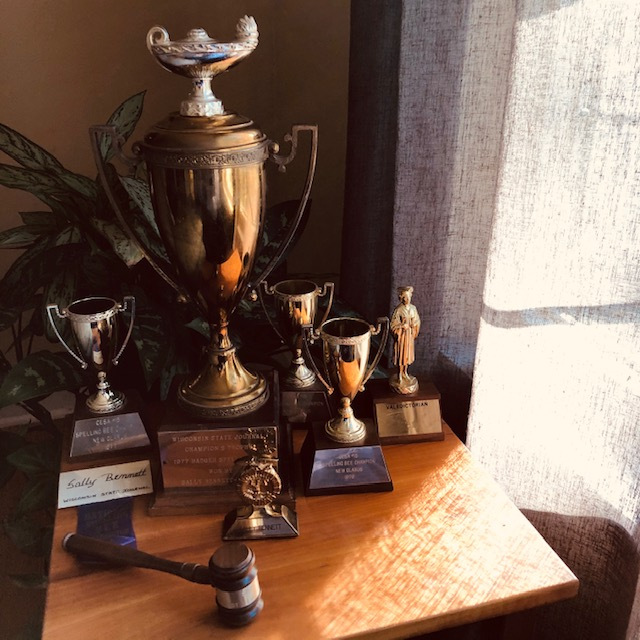Sally Bennett Boyington
Ask anyone who knew me in my younger days, and they’ll probably tell you some variation of “That Sally, she’s a bookish girl.” Books have been a significant part of my life for as long as I can remember.
My sisters used to read to me. They may have started with something like The Cat in the Hat but soon moved into fascinating make-believe places such as Middle Earth and Narnia. At four years old, I asked my mother to teach me to read so I could enter the world of words by myself.
My imagination soared as I explored the Old West, colonial India, pre-WWI Hungary, King Arthur’s England, and many other places long ago and far away where amazing and surprising things happen. I discovered mythology and folklore through the Brothers Grimm and Hans Christian Anderson, then moved on to Greek gods and folktales nearer to home, stories from Appalachia and the North Woods.
I used to escape chores by climbing a lovely old apple tree and sitting cradled in its branches to read. Ultimately I learned that people could make a living with books. Indeed, my first real job was in the very library where I used to sit on the floor captivated by an entire shelf of Beatrix Potter books.
I began to imagine worlds that had never existed, except in my head. At the age of seven, I had my first success as an author: a poem about Halloween that appeared in a Milwaukee newspaper. The words continued to flow into my mind as I read voraciously.
The vocabulary I acquired made me good at spelling. I went to the state spelling bee three times and won the competition that final year (my fatal words the first two years were “palatial” and “campanile”). One of the prizes, the most significant to me at the time, was a set of brand new encyclopedias to replace the ones we had in the house that had been published before I was born.
Finishing in the top ten in the national spelling bee (“centenary” was the word that vanquished me) resulted in a taste of local fame. In an interview from that time, I’m quoted as saying “Pressure makes me read more, and reading relaxes me.” Apparently I also said I “didn’t want anything to do with words” when I grew up but instead wanted to work as a computer programmer.

Life is funny that way. Although I started college thinking I would become a scientist, I soon changed my major to creative writing. The courses I took in many departments created a deeper appreciation in me of literature as well as visual and performance arts from around the world. Once again I found myself entranced by faraway places.
I jumped at the chance to move to Arizona and finish my degree there. On a childhood trip to Flagstaff, I had discovered Navajo jewelry, Hopi kachinas, and the surreal landscape of northern Arizona. Later visits to the Southwest included a whitewater rafting trip, exposure to genuine Mexican food, views of saguaros standing sentinel over the Sonoran Desert, and reminders of the fragility of human life.
A rich new world unfolded before me there. Trained as a historian, I became lost in the rich history, prehistory, and deep environmental and geological history of Arizona. The air I breathed while standing at the ruined stone walls of Wupatki Pueblo made me dizzy. I shivered in the shadows of the towering Casa Grande during the heat of summer. The awe I felt in Papago Park as I walked the trail to Hole-in-the-Rock, touching rocks smoothed by countless hands and climbing the foot-worn steps to the ancient Hohokam observatory, has never left me.
I gradually became an avocational archaeologist, not digging up artifacts in the dirt of ruins but learning about what professionals had found. As a copy editor, I was paid to read, and the majority of the 300+ scholarly books I read for a living were in the fields of southwestern archaeology, history, and environmental studies. I visited museums and excavation sites, talked to archaeologists and pored over what they wrote, and spent time wandering through the backcountry looking for signs of the people who had lived there before.
Why do I write about a culture that vanished long ago and a place where I no longer live? Because the Hohokam come to me in my dreams, as they have for decades. Writing about them, as well as about modern-day Arizona, keeps me connected to an impractical, mystical part of myself that I hope to keep alive forever.
You can discover this world for yourself in my novels.
Here’s my wish for you today: may you walk with the Watermasters and open your heart to them.
